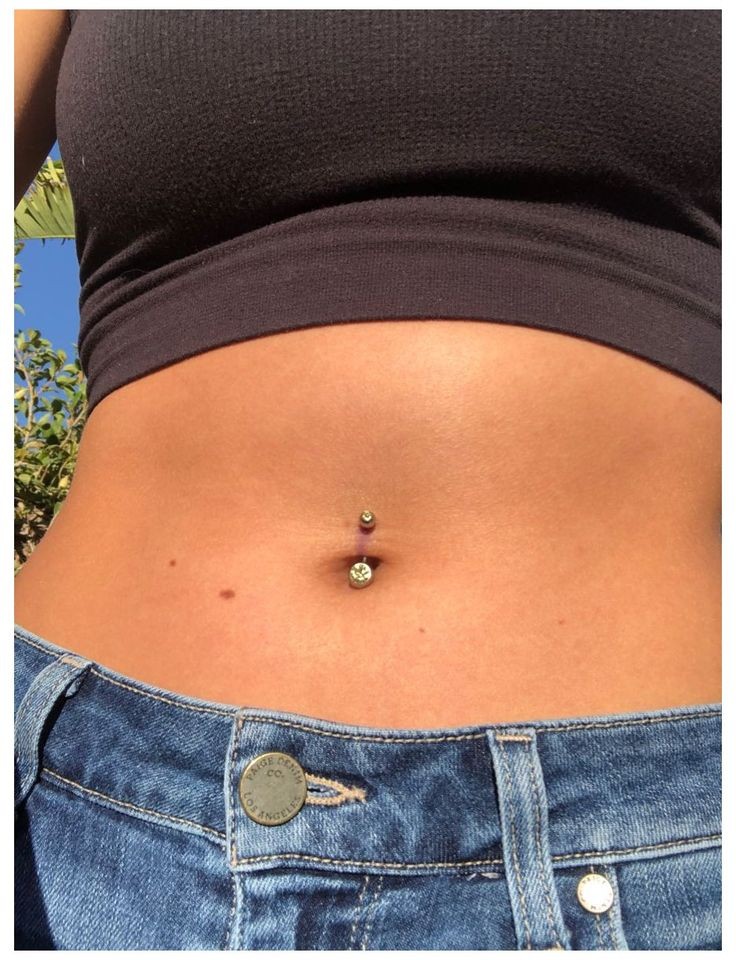Belly button piercings are among the very common kinds of human art. They truly are safe if an expert will do the piercing with the ideal needle in a fresh atmosphere. But unsanitary conditions and inadequate aftercare would be the top causes of bacterial ailments after piercings.
It usually takes nine weeks to one year old to get a belly piercing infection to cure fully. Throughout this moment, you are at an increased risk for illness. An accident with an older piercing may result in illness. By way of instance, if the piercing has captured on trousers or belt buckles.
Within the following piece, we will explain just how to tell whether your belly button piercing is infected and how to take care of this when speaking with your physician.
Symptoms of an infected belly button piercing
If a piercing is fresh, it’s ordinary to find a few swelling, discolouration, or discolouration around the website. You might also provide some obvious discharge which dries and creates a crystal-like crust around the piercing. These signs should progress as time passes.
Some of the most typical complications include bacterial ailments and allergy symptoms.
Bacterial diseases arise if bacteria from dirt or foreign objects enter the piercing that is open while it’s still curing. Bear in mind; piercings are available wounds that will need to be maintained tidy.
Signs of illness include:
- Intense swelling with redness and pain
- a yellowish, green, grey, or brownish release, which comes with an odour
- reddish lines which emanate from the piercing site
- fever, chills, dizziness, upset stomach, or even throwing up
- CHOOSE vigilantly
- The piercer is filed with the Organization of Professional Piercers (APP).
- The shop remains still clean.
- The piercer uses sterile tools.
- How to tell if you are allergic to the alloy
Allergy symptoms happen if you are allergic to the kind of metal used. By way of instance, piercing jewellery made from nickel is well known to cause allergies in susceptible men and women.
Metals that are secure for body piercings contain:
- Surgical steel
- strong 14-karat or 18-karat golden
- niobium
- ceramic
- platinum
Evidence of an allergic reaction include:
The creation of an itchy, inflamed rash around the piercing spreads into a bigger area, a little gap that looks bigger than previously tenderness that may emerge and move an inch.
1.Keep the piercing hole open
In case you suspect that an illness, do not remove the jewellery by yourself unless your physician tells you to do this. Many piercings won’t be removed to cure illnesses.
Keeping the piercing gap available lets pus empty. Allowing the gap to close can trap the disease inside your entire body, inducing the abscess to shape.
2. Cleanse the piercing
Fixing your piercing is equally crucial, both to prevent and cure disease. Pros recommend cleaning a piercing no further than double daily.
Use a saltwater mix (1/2 teaspoon sea salt each 1 cup of water) to remove any dried curing secretions. Follow with gentle antibacterial soap and warm water clean up. You might also use each of these cleansing techniques independently.
To begin with, don’t forget to clean your hands with antibacterial soap. Then work with a cotton swab as well as also your cleanup solution to gently wash the region around your belly button and also the ring. Pat the area dry with a towel.
Don’t use alcohol or hydrogen peroxide because these may dry your skin and irritate the area around the piercing.
3. Work with a hot compress
Place a hot compress onto the belly button piercing infection. This could assist the pus drain and make the swelling return.
Employing a wet compress, just like a hot washcloth, together with your cleaning answer. Put the compress onto the piercing. Gently dry the area using a fresh towel afterwards using the moist fabric.
4. Employ an antibacterial lotion
Consult with a dermatologist before utilizing an overthecounter antibacterial lotion, such as Neosporin, since there is a risk for contagious irritation of your skin and reduced warmth into your piercing site, improving the risk for illness.

